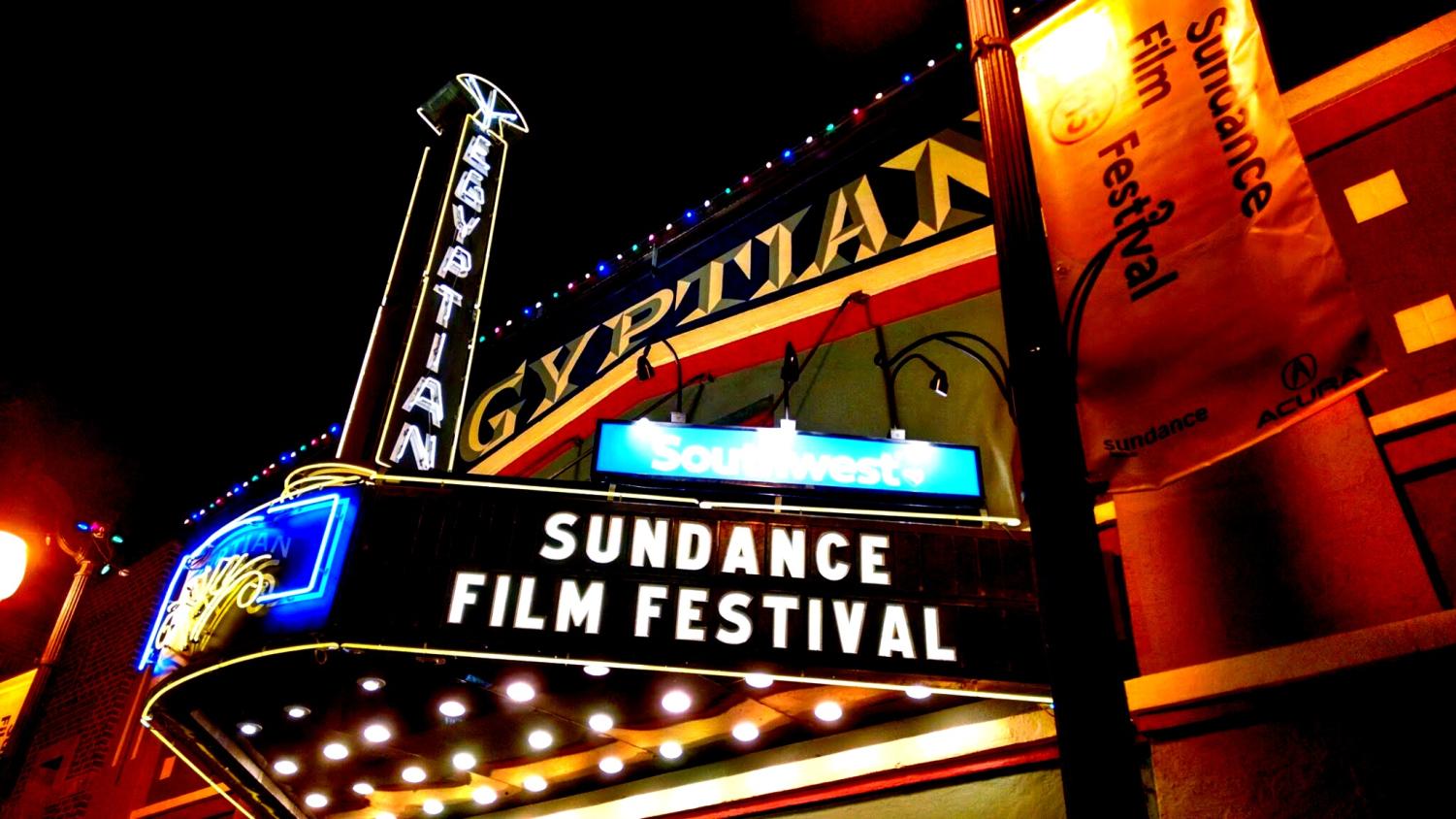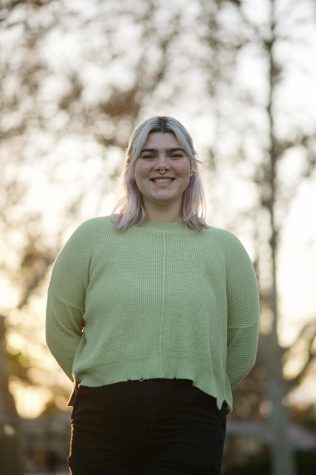The Sundance film festival takes place annually in Park City, Utah, where filmmakers and film-goers experience a full week of watching independent films from across the globe. The intentions behind the most popular films today are loved by fans because they comfort the afflicted. Yet, the Sundance film festival includes watching movies that are famously known to afflict the comforted. Without any sort of limitations or boundaries, the festival selects films that tell commonly untold stories and amplify voices usually silenced. Biola CMA students venture to Utah to experience a wide range of storytelling, and the discussions of challenging topics change the way they watch films and approach filmmaking as a whole.
THE SUNDANCE FILM FESTIVAL
According to Sundance.org, “Each January, the Sundance film festival brings artists and audiences together for the premieres of groundbreaking work, and year-round, the Institute hosts a variety of public programs to amplify original voices, inspire new ideas, and rally our community in support of independent storytelling.”
The festival amplifies voices that are usually unacknowledged and underappreciated. According to Master Class, independent films, or “indie films,” refers to a practice of filmmaking where creators are in more control of content, voice and style. Independent filmmakers are more hands-on with their projects and have unlimited freedom to tell the stories they want to tell. Projects under large production companies receive bigger budgets, but less control over the message of their films. Because the Sundance film festival supports indie films, more challenging topics are presented to the audiences.
The Biola CMA program allows students to participate in the festival by taking a study tour to Park City, Utah in January. By participating in the class, film students at Biola are encouraged to expose themselves to topics they might not otherwise encounter and subsequently glean an immense amount of insight into the secular world.
“Biola offers the Sundance Study Tour because of the way it enriches our students’ lives and challenges how they view themselves as storytellers,” CMA professor Dean Yamada said. “I think it’s also important that Biola has a presence at Sundance and that our students are engaging in the cultural dialogue happening around film, art, politics and religion.”
THE PURPOSE OF GOING
The Sundance film festival is an opportunity for filmmakers to come into a community, share advice and make connections.
“This presented itself as an opportunity to experience the film industry outside the walls of Biola, beyond Los Angeles, and see what a real film festival is like,” senior film major Benjamin Dilsisian said. “I was excited about the potential networking opportunities because of how concentrated the demographic of professionals and film lovers alike was going to be in Park City.”
Students see firsthand where their projects will take them in the film industry and have the freedom to explore different styles of filmmaking.
“I wanted to participate in the Sundance Film Festival Class because I wanted a chance to recenter myself on why I was a filmmaker,” senior film major Kristin Dick said. “I love filmmaking, I always have, but to go to Sundance with a group of people who love the craft just as much, if not more than you do, is such an inspiring experience.”
The Sundance experience allows students to have the opportunity to immerse themselves in an environment completely outside of the CMA program and be inspired to tell their own stories in a more authentic way.
“Watching the films at Sundance was like taking a pulse on the events taking place in the world right now,” junior film major Cole Deppe said. “It broadened my perspective beyond the limited types of voices that I hear in my small bubble, and I was able to expand my view of the ways God is working not just at Biola but all over the world.”
CHALLENGING TOPICS
Christians often abstain from viewing films debuted at Sundance due to the challenging topics the selected films present. There are not any solidified ratings in the Sundance film selections, and only few things are known about the film before walking into a screening.
“Many of these films are not neatly tied up with little bows nor are they packaged to make us feel good about ourselves,” Yamada said. “They are meant to challenge, to enlighten and to inspire. Roger Ebert has called cinema an empathy machine because of the way movies help us to empathize with people different from us. Imagine watching 15-20 movies in the span of 7 days, many of which are heartbreaking and gut-wrenching. You cannot help but to come out of the festival transformed in the way you relate to others as well as in the way you tell your own story.”
The festival encourages attendees to go into the films blindly so they can connect with the raw expression of the films before any marketing or publicity can prelude the experience.
“It was a life altering week because of the films that I got to see there, and my mission as a filmmaker was given a sober reality check.” Dilsisian said. “The favorites were ‘Theater Camp,’ ‘All Dirt Roads Taste of Salt,’ ‘Radical,’ ‘Sometimes I Think About Dying,’ and ‘20 Days In Mariupol.’ It was a spectrum of emotion watching each of these films, each with their own unique perspectives on life, its beauty, and just as importantly its brokenness.”
Students are opened to different cultures, beliefs and walks of life, exposing themselves to important topics such as the war in Ukraine, sexual violence in the film industry and the Missing and Murdered Indigenous Women in America. These films and documentaries leave viewers with a broken heart, but a new passion to spread awareness.
“What I did not anticipate coming into Sundance was that there would be so many continuous themes of films running throughout the festival,” Dick said. “These themes often are reflected on what big world issues we see today. One of the themes that hit me hardest was the hard truth about Missing and Murdered Indigenous Women (MMIW) here in the States. The narrative film ‘Fancy Dance,’ and the documentary ‘Murder in Big Horn’ both talked about this subject and broke my heart. I felt challenged leaving these films to do something and get involved.”
Despite the controversy surrounding the festival for exposing audiences to shocking content, it is important to recognize the truth of the world and approach challenging topics with maturity and grace.
TAKEAWAYS
The Sundance Film Festival changes the way film students approach filmmaking. It inspires them to tell their own stories with confidence. Indie and documentary filmmaking attracts young filmmakers because they have more control over the content in their films.
“This trip gave me a glimpse into the direction our industry and culture as a whole are headed towards,” Dillsisian said. “As a moviegoer, there is a sense that the film industry is not dying, but evolving, and my approach to consuming media must have discernment in order to filter through so many different messages and ideas. Going to Sundance will forever have an impact on my experience as an audience member and reinvigorates that deep dream of being a filmmaker myself, telling stories for the good of others.”
Documentary filmmaking tells stories from true events and real walks of life. There is little room for outside parties’ opinions and perspectives. They tell the stories of the subjects with richness and legitimacy.
“I have always found documentaries interesting, but it wasn’t until I watched over a dozen at Sundance that I realized just how much I appreciate them,” Dick said. “Documentary filmmaking, though not the most popular medium of film, is easily the most impactful in my eyes. Each documentary I watched challenged me as a person and put a lot of my little stress and daily anxieties into perspective.”
It is important for filmmakers, especially Christian filmmakers, to go to the Sundance film festival and broaden their views about what deserves to be portrayed in the media. We should not feel intimidated by challenging topics; instead, we should be embracing the truth behind them. Some artists find it necessary to make disturbing artwork as a truthful presentation of our humanity. The Christian impulse is to shield ourselves from it. As easy as it is for one to be comforted by movies, being afflicted with independent storytelling can stimulate growth professionally and personally. The Sundance film festival expands one’s heart to grow in empathy and gain further understanding for the afflicted.












